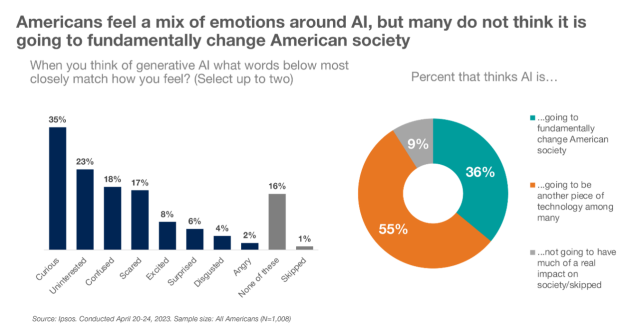Artificial Intelligence
How to Navigate Trust in AI for a Better Tomorrow
Transparency is the key to a future where AI serves humanity with integrity.
Updated April 10, 2024 Reviewed by Lybi Ma
I recently convened at the 2024 Digital Trust Summit, where seasoned leaders and C-suite executives gathered to explore strategies for cultivating trustworthy digital cultures, it's evident that fostering trust within organizations is paramount, particularly in the dynamic landscape of today's digital era.
Trust is fundamental to building great workplace cultures and it drives employee well-being and organizational success. According to a Harvard Business Review study, employees at high-trust companies report staggering benefits, including 74 percent less stress, 106 percent more energy at work, 50 percent higher productivity, 13 percent fewer sick days, 76 percent more engagement, 29 percent more satisfaction with their lives, and 40 percent less burnout compared to those at low-trust companies.
Yet, a recent Ipsos poll unveils a disconcerting reality: 75 percent of Americans harbor distrust toward companies engaged in developing AI technologies, doubting their commitment to prioritize the public's best interests. Surprisingly, 53 percent of Americans still believe that companies bear the responsibility for developing AI in a manner that minimizes harm.

This gathering encouraged invaluable insights and actionable recommendations for building a culture of trust in an AI environment. Some key imperatives were distilled from discussions, each essential for nurturing trustworthy AI ecosystems.
1. Drive Transparency and Explainability: Transparency is foundational for trust in AI. As leaders, we must take proactive steps to ensure that AI systems are transparent and explainable, enabling stakeholders to understand how decisions are made. This necessitates demystifying complex algorithms and providing clear explanations of AI processes and outcomes. To achieve transparency:
- Prioritize the development of explainable AI models that provide insights into the reasoning behind AI-driven decisions.
-
Utilize internal communication channels such as newsletters, intranet portals, and company-wide emails to disseminate information about ethical AI practices and initiatives.
-
Regularly share updates, resources, and success stories related to ethical AI to keep employees informed and engaged.
-
Encourage employees to ask questions and provide feedback, fostering a sense of ownership and accountability for ethical AI within the organization.
-
Establish clear policies and procedures for data governance and AI ethics, ensuring transparency is ingrained into the company culture.
-
Bring in cognitive behaviorists to mitigate bias and ensure the use of data with integrity, enhancing transparency and trustworthiness.
2. Foster a Culture of Ethical Leadership: Ethical leadership is instrumental in building trust in AI environments. Leaders must set the tone for ethical behavior by embodying values such as integrity, honesty, and accountability. To cultivate a culture of ethical leadership:
-
Identify and empower ethical AI champions within the organization who can serve as advocates for ethical AI practices.
-
These champions can act as mentors and role models, sharing their knowledge and expertise with colleagues and promoting ethical decision-making in AI development.
-
Encourage ethical AI champions to organize peer-to-peer learning sessions and facilitate discussions on ethical dilemmas, fostering a supportive and collaborative environment for ethical AI.
-
Prioritize ethics and integrity in all decision-making processes, ensuring that ethical considerations are integrated into AI development and usage.
By taking concrete actions to drive transparency and explainability, and fostering a culture of ethical leadership, we can build trust within our organizations and inspire confidence in AI technologies. Let us seize this opportunity to shape a future where AI serves humanity with trust and integrity.


